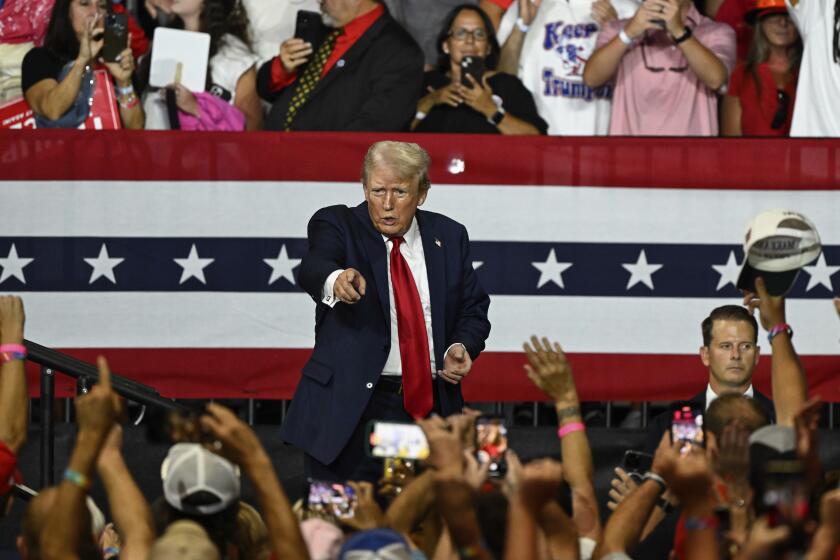Opening the books on 401(k) expenses
Federal officials proposed rules Thursday to ensure better disclosure of the fees levied to administer 401(k) retirement accounts, but critics immediately blasted the measures as inadequate.
The Department of Labor said its proposal was designed to address concerns that retirement nest eggs are being eroded by obscure fees and deductions that employees may not even know they are paying.
“We are working quickly to implement regulations that foster fair, competitive and transparent prices for services as well as combat excessive or hidden plan fees,” Labor Secretary Elaine L. Chao said in a statement.
The proposal would force companies that administer 401(k) plans or that provide investment funds to report the compensation they get for their services, both directly and indirectly.
It also would require that the provider disclose any potential conflicts of interest. For example, a firm that runs a 401(k) plan might receive money or other compensation from a mutual fund company to include its products in the menu of investments it offers employees.
Critics said the proposal had one major flaw: The disclosures would be to plan “fiduciaries” -- employers -- and not employees, who typically bear the brunt of the overhead costs.
“It’s clear that the rules are inadequate because they fail to require disclosure of fees and conflicts of interest to workers,” said Rep. George Miller (D-Martinez), chairman of the House Education and Labor Committee, who has proposed legislation that would mandate such disclosures.
Miller introduced legislation in July that would require fee disclosures directly to participants in the plan, but the proposal has not progressed out of committee.
Some business groups have argued against more disclosure, contending that the information could be confusing to employees and make them less likely to contribute to a 401(k) plan.
James Klein, president of the American Benefits Council, a group representing employers, said it was “very important that the plan information is available to everyone and everyone is informed about their plans and the expenses of their plans.”
“But the devil is in the details,” he said.
Klein and several other experts declined to comment specifically about the rules, however, because the details were still sketchy. The Labor Department issued a summary but has not posted the entire proposed regulation.
Last year The Times reported how hidden fees were quietly eating into the retirement nest eggs of millions of workers with 401(k) accounts.
In other cases, The Times found, workers were not being charged fees directly but were steered into “retail” mutual funds with high management fees, instead of the lower-cost “institutional” funds typically available to large groups.
Congressional leaders have since commissioned studies and launched hearings to determine what 401(k) fees cost workers and whether they were adequately disclosed.
The hearings and a subsequent investigation by the Government Accountability Office found that most plan participants didn’t know how much fees cost them.
Part of the problem is that fees are charged as a percentage of assets. As 401(k) accounts get larger, the amount deducted for overhead costs grows bigger and bigger -- far outpacing the cost of administration.
And fees that seem relatively modest can take a big bite over time. Over 20 years, for example, an administrative fee of 1 percentage point would cost an investor about $102,000, presuming an initial investment of $100,000 that earns average annual returns of 9%. That would leave the investor with $458,388 at retirement instead of about $560,000.
Labor Department officials estimate that the new rules would cost the industry about $52 million the first year, with the expense diminishing over time.
The proposed rules now go through a comment period, after which they can be revised or simply implemented by Chao.
Experts say it usually takes at least six months from the time rules are proposed before they are adopted.
Rebecca Davis, staff attorney with the Pension Rights Center in Washington, characterized the department’s action as a first step in a series of actions that are needed.
“But if the rule doesn’t include participants, it doesn’t go far enough,” she said.
More to Read
Get the L.A. Times Politics newsletter
Deeply reported insights into legislation, politics and policy from Sacramento, Washington and beyond. In your inbox three times per week.
You may occasionally receive promotional content from the Los Angeles Times.










